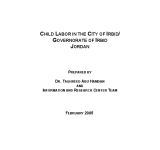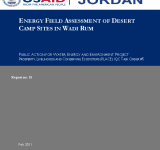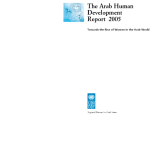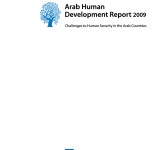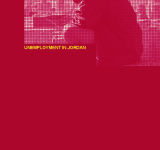This research study aims to investigate child labor in Irbid to provide a deep understanding of and knowledge about the socio-economic and cultural context of working children in Irbid. It also aims to propose intervention programs that maximize the effectiveness of the Family and Childhood Protection Society (FCPS);; an NGO in Irbid that works on issues related to children. Various study results have shown that children often work in dangerous and hazardous conditions where they are exposed to physical and psychological abuse;; in addition to exploitation in terms of minimal pay and long working hours. Both qualitative and quantitative methodologies were used to conduct the research presented in this report. In-depth interviews and questionnaires were used to collect data from all organizations working on child-related issues and from working children and their family members.
والاحتلال
This report concerns the results of a survey on children’s literature and the promotion of reading in Palestine as represented by the West Bank and the Gaze Sector. Emphasis is placed on a number of axes regarding children’s literature;; including policies and legislation;; programs and institutions;; libraries;; elementary schools and universities;; and the publishing and distribution of children’s books. Upon analysis of the state of children’s literature in Palestine;; this report identifies certain trends regarding child culture. It also identifies a number of problems facing the promotion of reading among children;; including financial constraints;; the quality and availability of libraries;; and the overarching challenges influenced by Israel occupation.
The report is based on a field assessment of 16 desert campsites in the city of Aqaba – Wadi Rum and Dieseh districts to evaluate these camps’ energy needs and their current energy situation. As part of the Public Action for Water;; Energy and Environment Project (PAP);; a public education and behavior change communication program developed to support USAID’s technical and policy investments in the Jordanian water and energy sectors;; the report assesses the current government policies and behaviors related to the issues of water;; solid waste and energy at campsites in Wadi Rum and Dieseh. The fieldwork of the report was designed to assess current campsites’ situation and energy profile;; evaluate how to reduce their energy needs;; and assess the possibility of installing renewable energy for electricity. The report concludes with several recommendations such as the enhancement of energy efficiency;; re-design of the electrical lighting systems;; re-wire of the electrical circuits;; and enforcement of laws and regulations.
This report presents a compelling argument as to why realising the full potential of Arab women is an indispensable prerequisite for development in all Arab states. It argues persuasively that the long hoped-for Arab “renaissance” cannot and will not be accomplished unless the obstacles preventing women from enjoying their human rights and contributing more fully to development are eliminated and replaced with greater access to the “tools” of development;; including education and healthcare. By placing Arab women firmly in the centre of social;; cultural;; economic and political development in the entire region;; the Report goes beyond arguing that half the population deserves half the participation. In fact;; it asserts that irrespective of the numbers;; Arab women have already accomplished great strides that are transforming the region’s political economy and social demography. While lauding these achievements and making a strong case for facilitating this strong current of positive social transformation;; the Report also analyses the remaining impediments;; and suggests concrete steps towards their elimination.
The fifth volume in the series of Arab Human Development Reports sponsored by the United Nations Development Programme and independently authored by intellectuals and scholars from Arab countries. The report argues that human security is a prerequisite for human development;; and that the widespread absence of human security in Arab countries undermines people's options.
This pilot study report was initiated by the European Training Foundation (ETF);; in close cooperation with the National Center for Human Resources Development (NCHRD) in Jordan;; in the framework of the ETF multiannual project Observatory Function Development in Jordan. The focus of this report is unemployment. However;; considering that unemployment information in itself should not be used or analysed in isolation from other indicators or data;; the report begins by providing an overview of the general labour market situation in Jordan. After the main data on employment by sector;; age;; gender and level of education are presented;; on the basis of the available information;; the specific cases of non-Jordanian employees and employment in the informal economy are highlighted as topics requiring special attention in the Jordanian labour market. In conclusion;; two groups of recommendations are proposed: (i) technical recommendations to main information providers for improving the quality of the information collected;; and (ii) a set of policy recommendations for tackling unemployment. These recommendations are intended to support policymakers in their commitment and willingness to adapt both the formal and informal education and training system and the whole labour market in Jordan.
